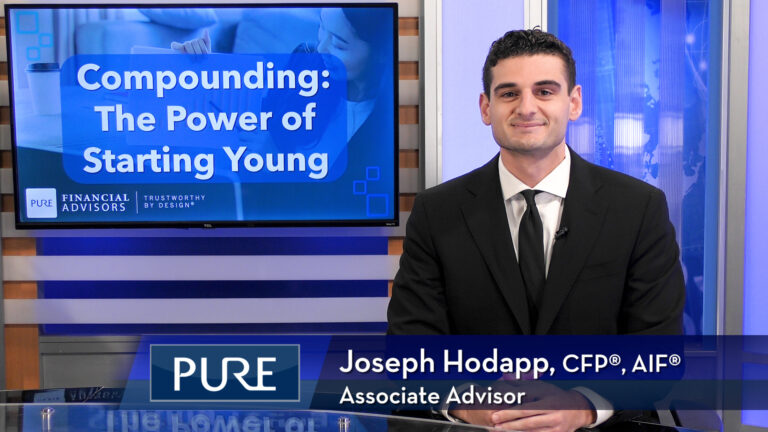What does it mean to have a step-up in cost basis on an appreciated asset? (An appreciated asset could be a stock, bond, mutual fund, etc. that has gone up in value) For estate planning purposes, how is the gain on the asset taxed for the beneficiary? Pete Keller, CFP® of Pure Financial Advisors walks through stepped-up basis for beneficiaries, for spouses where the asset is held as joint tenants with rights of survivorship, and for spouses where the asset is held as community property.
Transcript:
Hi, my name is Peter Keller, a CERTIFIED FINANCIAL PLANNER™ with Pure Financial Advisors and this week we received a call from a client on what is a step-up in basis? It’s a great question and here’s how it works:
Typically when you have an asset, a capital asset – and that can be defined as a stock, bond, mutual fund, real estate, any kind of appreciating asset – when you make an investment in that asset, you have what is called basis. And let’s use an example where we have $100,000 as the basis, and let’s say this asset, whatever it is, stock, bond, mutual fund, appreciates in value to $500,000. That means you would then have a gain of $400,000. Now when an individual passes away with this appreciated asset, the beneficiary gets this assets stepped-up to the fair market value, which means the beneficiary can now sell this and pay zero in capital gains tax.
Now let’s say in another scenario that this is a married couple and we have a couple of different options in that scenario. So starting off with the same basis again in this appreciating asset, we’ve got $50,000 as cost basis for one spouse and $50,000 of cost basis for the other spouse. Again it appreciates to $500,000 in value. And that means this spouse has a $200,000 gain, and this spouse has a $200,000 gain. If the asset was held as joint tenants with rights of survivorship and one spouse passes away, all of this is basis, so there’s no capital gains tax, and this half would get stepped-up for the deceased spouse. And then the surviving spouse, if they wanted to sell this asset, they would then pay capital gains tax on $200,000.
Now if we take it one step further with step-up in basis on community property it works a little bit different. So again, you have the same basis of $50,000 for each spouse because that’s the starting value and that asset appreciated in value to $500,000. And again, it’s $200,000 of gain for each spouse. And with community property, when one spouse passes away, the whole asset gets stepped-up to the fair market value, and the surviving spouse can sell this asset without paying any capital gains tax.
So that’s cost basis stepped-up explained. For further questions or comments, please contact us at Pure Financial Advisors.












